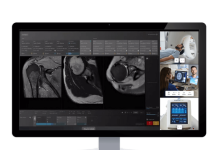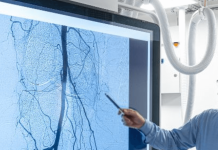Pfizer isn’t yet done applying CytoReason’s artificial-intelligence-powered platform and disease models to its own drug discovery and development work. Three years after the pair first teamed up, they’ve signed on to continue their AI-fueled collaboration for at least another five years.
The half-decade extension could see Pfizer pour up to $110 million into its tech partner, according to a Tuesday announcement. The Big Pharma will start by making a $20 million equity investment in the Israeli startup; the remaining $90 million will be doled out over the next few years to fund their work together and to cover potential licensing deals for CytoReason’s AI platform and disease models.
Pfizer and CytoReason previously shared their intentions to extend the partnership at the beginning of this year, when they touted the use of CytoReason’s platform to improve the drugmaker’s research efforts across more than 20 disease areas.
The additional funding will allow them to use the machine learning AI to develop high-resolution models of even more diseases, supporting Pfizer’s development of drugs for immune-mediated and immuno-oncology diseases.
CytoReason’s platform takes in real-world data from pharmaceutical partners then uses that information to construct tissue- and cell-specific models that simulate individual diseases. The company’s machine learning AI can then be used to explore those models and highlight differences between various patient groups and treatments, potentially identifying more effective routes of attack for new drug candidates.
In doing so, the startup claims its platform can help drugmakers speed up their clinical trials, cut drug development costs and even up their likelihood of earning FDA approval.
“CytoReason’s biological data allows us to gain deeper insight into the best drug development pathways for patients, resulting in more informed decisions that are timely and cost-effective,” said Mikael Dolsten, M.D., Ph.D., Pfizer’s chief scientific officer and president of the worldwide research, development and medical division.
So far, since its 2016 founding, CytoReason has linked up with half of the world’s largest pharma companies.
In 2021 alone, it added Sanofi and Merck KGaA to its roster. The Sanofi team-up kicked off in June of last year, when the French pharma tapped CytoReason’s platform to improve its understanding of the wide variety of asthma endotypes. Merck KGaA came aboard a few months later, when it pledged to use CytoReason’s AI to analyze phase 1 and 2 findings of an undisclosed immuno-oncology drug, building a map of the patient populations and tumor types in which it may be most effective.




